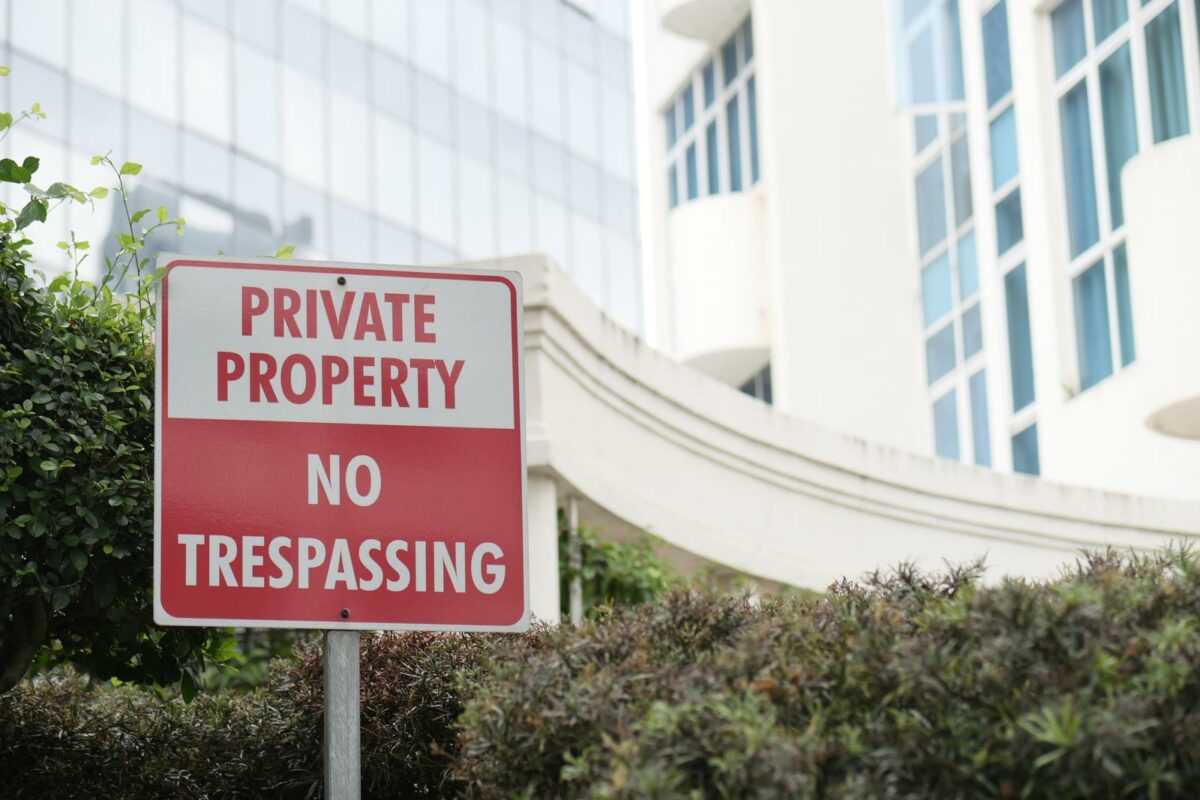Share the post "Removing Squatters in Texas: Best Practices and Legal Procedures"
Investing in real estate or simply purchasing a property to rent out are typically seen as safe and reliable ways to spend your money. With good research and solid guidance, you can acquire a property in a good area that’ll eventually bring you in steady passive income and, hopefully, increase in value over time.
However, as with any big investment, there is always some level of risk involved. One that most people don’t think about until the problem is quite literally at their doorstep, is squatters. So, today, we’re going to discuss how to get rid of squatters in Texas.

How To Get Rid Of Squatters In Texas: Complete Guide
Unforeseen repairs and maintenance, lengthy periods of vacancy, an economic downturn, or bad tenants are all standard risks associated with buying a property. Yes, you can mitigate them, but at the end of the day, some issues are unavoidable.
But for the most part, many of us don’t think about squatters and the unique problems that arise when they infiltrate your home. If you’re unfortunate enough to have to go through such an experience, there is at least some risk that the squatters can gain legal ownership over the property.
Now, we definitely don’t want to see someone lose their home under such circumstances. So, in this article, we break down squatters’ rights in Texas and how you should deal with them if they’ve commandeered your property. So, let’s start by discussing what a squatter actually is.
What Is A Squatter In Texas?
Under Texas law, a squatter is an individual who inhabits a property that they have no legal right to occupy. In most situations, squatting occurs in unoccupied, abandoned, or foreclosed properties when the owner isn’t aware. Squatters don’t pay rent and have no legal agreement with the property owner.
Most people associate squatting with homeless people who take over abandoned buildings. While this is quite common, it’s not the only form of squatting. A tenant who stops paying rent and breaks the lease agreement but stays on the property can also be seen as a squatter.
One of the biggest problems with squatters is that in rare cases, they can stake their claim to take ownership of the property. However, this usually only occurs if they inhabit the building for several years without being evicted and fulfill several other legal requirements, all of which we’ll touch on a little later.
But, because squatters have a particular set of rights, dealing with them is a civil matter rather than a criminal one. Once the property owner files for a squatter’s eviction, they become trespassers. Since trespassing is a felony offense, a proper legal eviction can then take place.
So, if you’re a property owner, it’s very important that you completely understand your rights as a landlord, your tenants’ rights, and unfortunately, squatters’ rights. If you find yourself in a pickle, you’ll have to follow certain protocols to resolve the situation, so it’s best to be prepared.

Squatters’ Rights Texas
The distinction between squatters and trespassers is very important in the state of Texas. By law, you’re not allowed to forcibly remove any squatters from your property, as frustrating as that might sound. So, avoid doing so if you don’t want to get yourself into legal trouble.
One of the most important squatters’ rights in Texas is that they cannot be displaced from a property without a proper eviction. The next most important right they have the right to make an adverse possession claim, which, if successful, grants them legal ownership of the property.
In the state of Texas, squatters must meet five strict requirements to make a successful claim. Fortunately, for the property owner, most squatters are unlikely to meet these requirements unless they’ve been living in the property for several years without having an eviction notice filed against them.
Now, let’s take a look at these requirements.
1. The Squatter Must Have A “Hostile Claim”
The term hostile claim doesn’t necessarily mean anything malicious, despite how it sounds. Essentially, it just means that they are occupying someone else’s property. It doesn’t matter whether they know that the property is owned by someone else or not. In some cases, a squatter may not realize the land is owned.
2. The Squatter Must Treat The Property As Their Own
To avail of an adverse possession claim, the squatter must demonstrate that they’re acting as if the property is theirs or is physically owned by them. This can be done in several ways. Firstly, they must actually live there and demonstrate a physical presence at the property.
They can also prove this by showing efforts of upgrading or beautifying the property, such as home improvement projects, gardening and landscaping, or installing fencing around the perimeter.
3. The Squatter Must Live Continuously At The Property
Squatters can qualify for an adverse possession claim only if they’ve resided at the property for a certain amount of time. Depending on the time period, they must also meet a particular set of criteria. Here are the minimums and what they can mean for squatters:
- 3 years: for an adverse possession claim, the squatter must hold the color of title and show proof that they’ve lived at the property for a minimum of three years.
- 5 years: for an adverse possession claim after five years, the squatter will have to prove that they lived there for this period and pay property taxes for the entire duration.
- 10 years: if the squatter doesn’t have the color of title or proof that they paid property taxes, they can’t avail of an adverse possession claim until they’ve lived at the property for at least 10 years.
Regarding each of these occupancy periods, the squatter must show that they’ve lived on the property continuously. If they left the property for several weeks or months, they won’t qualify for an adverse possession.

4. Squatters Must Occupy The Land Exclusively
Squatters can’t apply for an adverse possession claim as a group. Rather, they must prove that they occupied the property exclusively.
If anyone else lived there during that time, including tenants or even the owners, the claim will be deemed invalid.
5. Squatters Must Make It Obvious They’re Living There
Squatters can’t claim adverse possession if they’re secretly living in an abandoned property. They must fulfill the “Open and Notorious” requirement, which essentially means that they haven’t been covering up the fact that they’ve been living on the property.
They must show that they live there continuously, just as they would if they owned or rented the property. Any indications of trying to hide their occupation would render their claim invalid.
Why Do Squatters Have Rights?
Seeing as squatters can cause so many problems for landowners, many people wonder, why squatters have rights in the first place. Well, the main idea is to prevent violence and vigilante justice. Without squatters’ rights, eviction scenarios could escalate and become very dangerous.
Having clear rules discourages homeowners from taking the law into their own hands and potentially creating unsafe scenarios. The laws help keep the peace and ensure there are processes in place to resolve squatting issues.
How To Get Rid Of Squatters
It’s vitally important for homeowners to know about squatters’ rights and what they shouldn’t do if they experience squatters. One misstep can easily result in a legal case that could get messy. Thankfully, the process of getting rid of squatters isn’t too complicated.
The state of Texas doesn’t have a specific rule for evicting squatters. So, they’re treated just like any other tenant you want to evict and must be subject to a judicial eviction process. The first step in this process is usually to service a 3-Days eviction notice.
This is an official written notice to the squatter that they must pay all due rent for their time spent living in the property or leave. If the squatter doesn’t comply, you can take the case to court and file for an eviction. Unless the squatter fulfills all requirements for adverse possession, you’ll likely win the case.

If you simply want an eviction without an option to pay rent instead, you can serve a 3-Days Eviction notice for illegal activity. Again, since the squatter becomes a trespasser once you service this notice, you’ll likely secure a legal eviction in court.
Once your eviction has been granted, you must serve your local sheriff with a Writ of Restitution. A law enforcement officer is the only person legally entitled to remove a squatter from your property, even with a successful judicial eviction granted from the court.
Preventing Squatters From Entering Your Property
Getting rid of squatters in Texas isn’t necessarily difficult but it can be an arduous process, especially if the case goes to court. So, where possible, it’s best to prevent squatting issues before they crop up. Here are our tips for keeping squatters from your property.
- Keep your property in good condition, ensuring it looks cared for
- Visit and inspect your property regularly
- If the property is unoccupied for long periods, cut off the amenities to make it difficult to live in
- Install locks and secure all entry points
- Consider installing cameras and security alarms
- Secure the perimeter with fencing or gates
- Place “No Trespassing” signs around the property
- Ask your neighbors to report suspicious activity
References
Share the post "Removing Squatters in Texas: Best Practices and Legal Procedures"
Christian Linden is a seasoned writer and contributor at Texas View, specializing in topics that resonate with the Texan community. With over a decade of experience in journalism, Christian brings a wealth of knowledge in local politics, culture, and lifestyle. He holds a Bachelor's degree in Communications from the University of Texas. When he's not writing, Christian enjoys spending weekends traveling across Texas with his family, exploring everything from bustling cities to serene landscapes.











